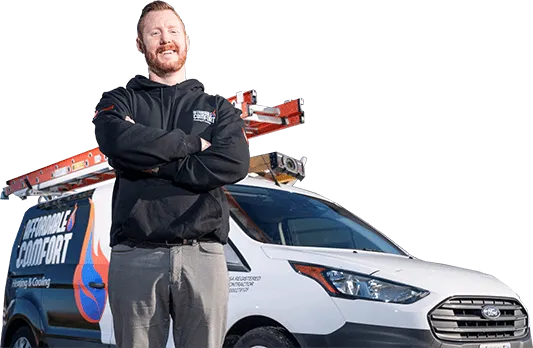Are you in the market for a new gas furnace? If so, you may be wondering what the difference is between single-stage and 2-stage furnaces. Let’s discuss the differences between these two types of furnaces and help you decide which one is right for you.
Single-stage gas furnaces have only one heat setting. This is most likely the type of furnace your parents had and potentially you had in your first home. This type of furnace will run at full power when it is turned on, regardless of the outside temperature or set temperature. While this can be beneficial in some situations, it can also lead to higher energy bills and higher temperature swings, which will result in lower comfort.
In contrast, a 2-stage furnace has two heat settings: a low setting and a high setting. The low setting is typically around 60-70% of the BTU capacity, while the high setting is 100% of the BTU capacity. The furnace will automatically switch between these two settings based on either timing or the differential between the set temperature and the room temperature. This can save you money on your energy bills and increase the comfort level in your home, as the furnace will not have to run at full power all the time.
The best analogy to better understand the difference is to think about a new driver, when they first start driving, they typically accelerate and brake quickly and aggressively, making for a less comfortable and less fuel-efficient ride, this would be comparable to a single-stage furnace. Take that same driver and put them on cruise control and your comfort level and fuel efficiency improve, this would be your 2-stage furnace.
So, which type of furnace is right for you? If you live in an area with mild winters, a single-stage furnace may be all you need. However, if you live in an area with harsher winters, such as Barrie, Ontario, a two-stage furnace may be a better option. Ultimately, the decision comes down to your personal preferences and your budget. If you have any questions about which furnace is right for you, please contact us and we would be happy to help.
Thanks for reading!












